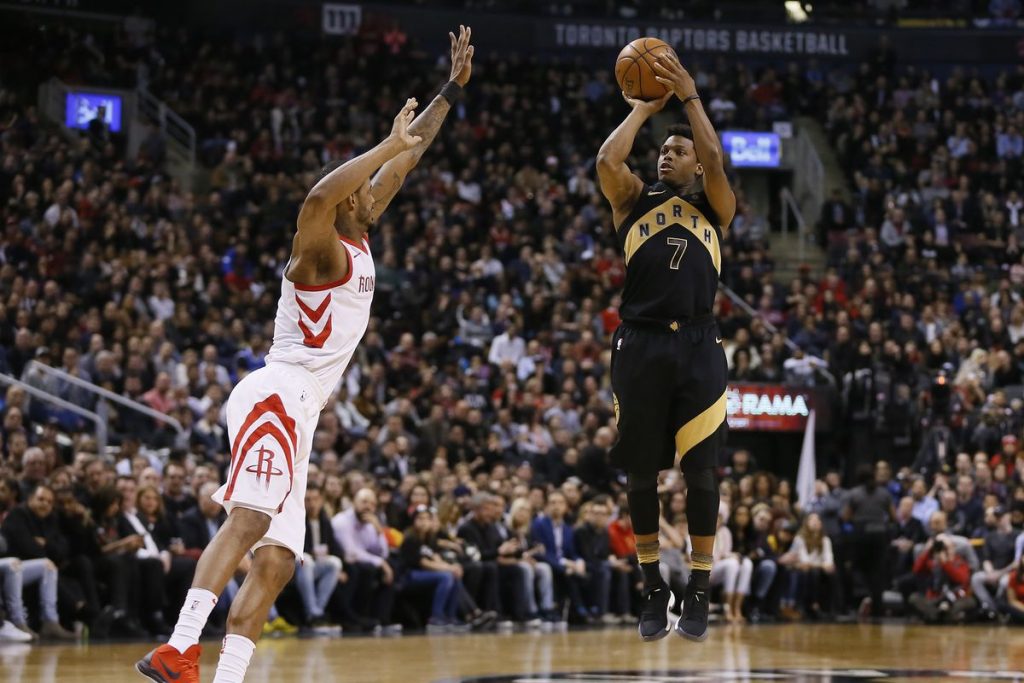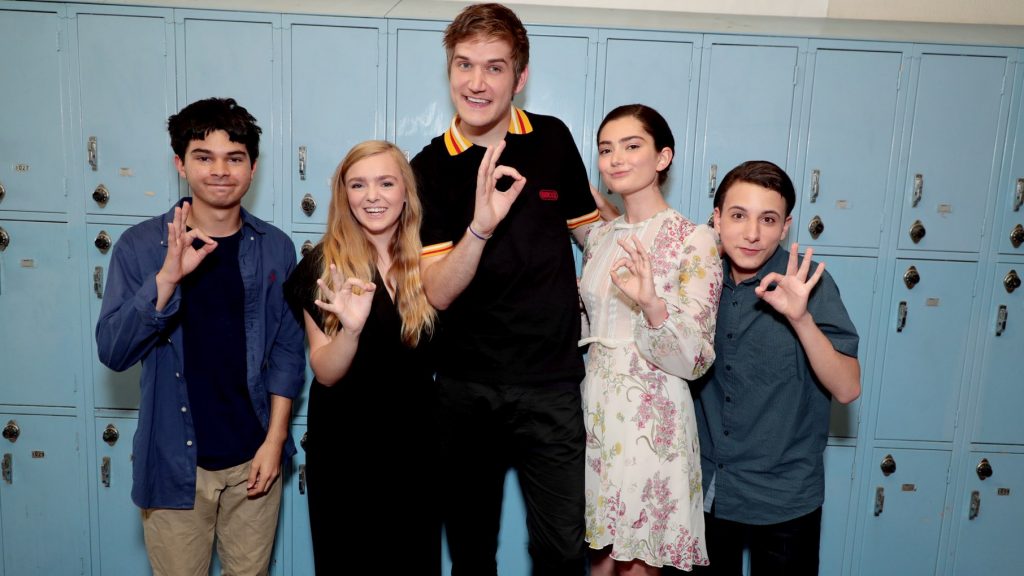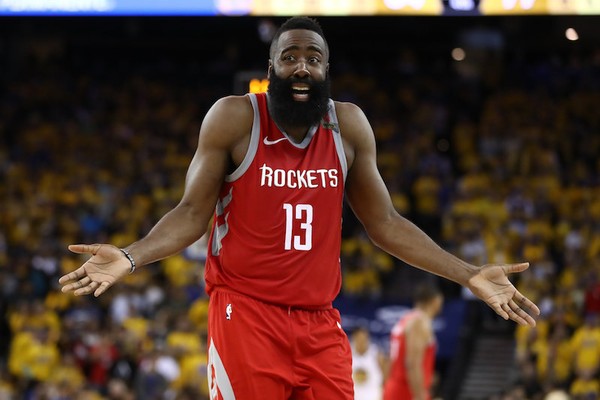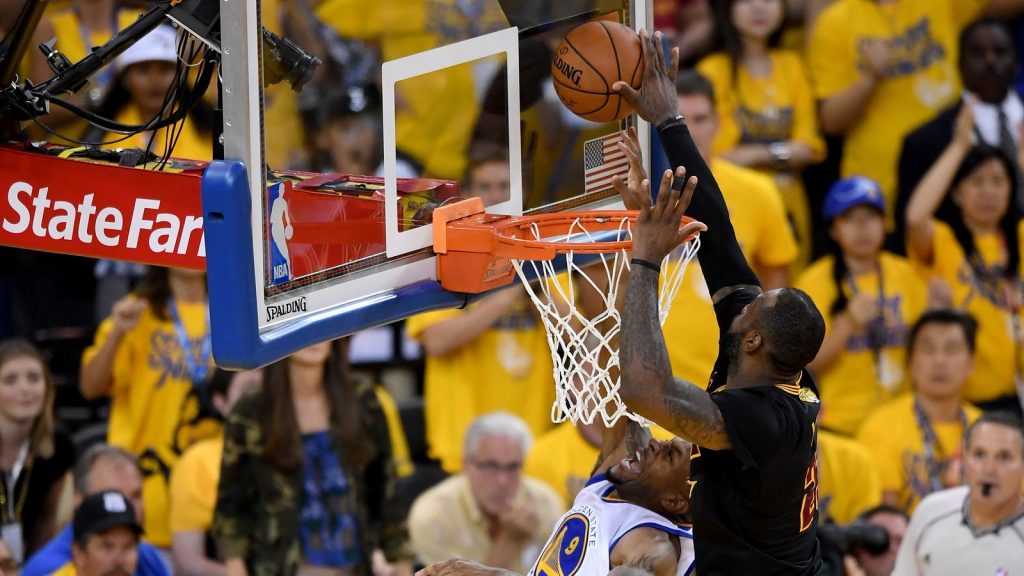Alex writes an appreciation of basketball writer Zach Lowe and discusses objectivity in sport.
When something monumental happens, it is natural to clamour for a voice you trust to decipher said event for you. You want to run this moment through a filter that you trust, hoping the filter can sort the flecks of gold from the covering of sand and dirt. This is why people say, “Hey can we go for coffee I want to talk about something,” which is something I have been told normal people do.
I do not feel that way about my own life. What you’re reading is my equivalent of going for coffee, and it just so happens to eliminate the middleman (or middlewoman! or middle gender non-binary individual!) of dealing with another human being. That is not to say there are no trusted voices in my life, because I am in fact a man (or woman! or gender non-binary individual!) and everybody needs somebody. Those somebodies have lives though, so sometimes an individual I don’t technically know will have to suffice.
This case is sort of different because there are writers I can name whose actual work I appreciate more than the writer in question. Nobody will ever unseat my numero uno, somebody who has had such a strong influence on myself that I refuse to mention his name for fear of making my stylistic plagiarism immediately obvious. It seems hard to imagine me liking any novel more than I like Cormac McCarthy’s Blood Meridian, although The Moviegoer by Walker Percy comes close. As a white male who was alive for the entirety of the 1990s, I am legally obligated to mention my appreciation of David Foster Wallace, so this is me doing that. Sarah Vowell has made me chuckle more times than a lot of people who are actual friends, and I love David Shields to a point where I have no idea how to direct a person who wants to read only one of his books. (Probably Black Planet. Anybody with a passing interest in sports should read Black Planet.)
These writers are all stylistic masters, because often I prefer style over substance so that I can wade through the swamp and pick what I want to keep with me. The writer in question today, though, is somebody who wouldn’t write this preamble, a writer who would throw one Seinfeld reference in his column and then keep it moving. That would be basketball writer Zach Lowe.
The basis of me beginning to read Lowe’s work is simple. Grantland positioned him as their basketball Bill Barnwell when Lowe started at the site in 2012, somebody willing to put in a lot of work and a lot of words to explain things to people like me. I had been obsessed with the sport for 10 plus years before I read Lowe’s work, and I felt I had a good feel for the game and player tendencies, but reading Lowe taught me stuff that coaches and players actually think about, a feeling that has only increased as time has passed and the contact list in Lowe’s iPhone has become more robust. As Grantland shuttered and Lowe started publishing under ESPN proper, the fact that there was a Grantland writer working on pieces that looked like remnants of Grantland can only have helped me appreciate his work more.
Basketball is typically an easy to digest sport for the non-sports fan. Invariably, whenever I start dating somebody new, the easiest sport to get them to watch with me is basketball. It is (typically) faster paced than any of the other North American big five sports, and the basic parameters are simple to explain. This team shoots at this hoop, the other team tries to stop them, and this matchup happens somewhere in the vicinity of 164 times a game. Basketball also happens to be the sport where you are most likely to see something that appears truly superhuman, an athletic maneuver that looks like something a human being should not have the capacity to pull off. There are fantastic displays of skill in all sports at this level, but people like Russell Westbrook and LeBron James only exist in basketball*. This is what drew me to the game circa 2000 (specifically Vince Carter’s athleticism and unusual method of holding a ball like a pea an arm’s length behind him), but as with anything I become obsessed with, I wanted to learn more about the particulars. And for a full decade I found myself having a hard time finding a voice for such explanations. As I grew more interested in the game as opposed to a specific team, this became more of a problem. I can’t say I knew I wanted such a voice, but as with most things involving Lowe, I didn’t know this was something I wanted to learn until I did.
*I’m happy to listen to an argument that says similar things about NFL wide receivers – see Julio Jones’ fourth quarter toe tapping in Super Bowl 53 for an example – but even the best wide receiver is only meaningfully involved in 10 plays a game.
One who has listened to and/or read a lot of Lowe knows the man was once a teacher, and the instructional way he describes basketball plays leads me to believe he was probably pretty good at it. I’m even more confident that he was a good court/police journalist in Stamford, seemingly his last pre-basketball employment, as Lowe is a man who thoroughly believes in both objectivity and effective sourcing. With my limited research here (there is not much to read about Lowe online, which I’m sure is what he prefers), the Henry Abbott-led Celtics blog Lowe wrote for got him hired at Sports Illustrated, which eventually lead to him joining Grantland.
My recollection of following Lowe is that I didn’t initially read everything he would publish on Grantland – I still don’t, but the fact that I recently read a piece on the Chicago Bulls’ current roster, a team I don’t care about that will probably be terrible this year, shows that at least I read most – and when his podcast The Lowe Post first started being released I surely did not listen to every episode. I no longer feel that way. I will listen to every episode, even if the guest is somebody who insufferably attempts to sound smart by saying “pragmatic” and “ostensibly” fourteen times over the course of the hour. Lowe’s thoughts are worth it. This seems impressive to me, especially given that at this point I listen to maybe one podcast a week.
A year or so ago, for no specific reason, I (mostly) stopped listening to podcasts. Since 2010, I had been racking up listens, hungry for the opinions of others, but by 2017 I started to worry I was consuming so much thought that I didn’t leave room for my own. I went back to the old faithful of listening to music – a way to hear the thoughts of others without necessarily being told, “here’s what I think about this subject.” Listening to Josh Homme sing about drug abuse is a different experience than having Brooke Gladstone tell me what Trump is saying about the media this week, the former being one that leaves room for more thoughts of my own. Podcasts that were once must-listen became something I have almost entirely forgotten about. I remain undecided on whether or not this is positive growth or hiding from certain truths of reality, but I know the fact that Lowe’s podcast is the only one I still listen to every episode of probably means something.
Last weekend I saw Eighth Grade for the first time, and it was pretty fucking great. Director Bo Burnham had somehow made a teen film feel like a Coen Brothers movie, and star Elsie Fisher was beyond stellar. I had a hard time piecing together why I liked the film so much, and the person I saw the movie with seemed to be able to see that on my face. After we went our separate ways, I sat on a stoop simply to sit for a few minutes and ponder what I had watched. Eventually, I got up, and I kept it moving.
On our podcast*, I have said many times that the best kind of movie is one that you figure out on the walk home. Hail Ceasar is a notable recent instance of this feeling, leading to the Coen comparison above (although Eighth Grade reminded me more of Inside Llewyn Davis), and similarly to that film I pieced together my thoughts on Eighth Grade while traveling home. This was a film that didn’t describe how I recall feeling at that specific time of my life – I was awkward, but pretty comfortable and self-aware of said awkwardness and how to (mostly) rein it in while in public – but it still resonated. Listening to an interview with Burnham on the process of writing the film, things became clearer.
*Now titled “Something of a Paradox.”
“I kind of really just wanted to make a movie about now.” Burnham told Sean Fennessey, in a conversation that also included Elsie Fisher. “Like, I did not set out to make a movie about young people. I set out to make a movie about how I was feeling and how the current culture feels to me. And then it felt like, you know what, the culture and the moment, I think it’s being most purely experienced by kids. I think the country is functioning at an eighth grade level. You know what I mean? It feels like that, doesn’t it? Doesn’t the national conversation feel like an eighth grade conversation at best?”
This perfectly explains the film in a way no words of mine could ever crystallize. There were elements of the film that felt like perfect situational adaptations of my own thought process today – watching that pool party scene felt like experiencing a modern day nightmare – but fundamentally, that the film was built on looking around and not understanding the world mattered most.
On a recent podcast, James and I discussed Akira Kurosawa’s 1950 film Rashomon. This is a film where truth is in question at all times, as a dead man tells his own story through a medium, and even as the end credits roll what truly happened is left unclear. James mentioned in passing during our conversation that he thinks there is an objective truth, which I agreed with before we moved on. I (of course) believe in the concept of an objective truth because to not do so would fill me with more existential malaise than even a Walker Percy fan can stomach. That said, what I regretted mentioning was that the existence of an objective truth doesn’t matter if nobody can agree on what that specific truth is. If a tree falls in a forest but nobody believes in evolution, does it make a sound?
Professional sports, in a lot of cases, can feel like an exercise in objectivity. You look at the scoreboard when the time gets down to zero, and whoever has more points at the end must have played better. This is a commonly held general opinion about professional sports, one I stand in staunch opposition to. It seems nice, and it sounds true, but the second you think about it at all, you realize it makes no sense. Baseball is probably the closest to allowing objectivity, famously the most analytical of all pro sports, but even then it’s still kind of bullshit. If Jose Altuve is charging to first base in the ninth inning and gets called out on a throw that beat him by a millisecond, manager A.J. Hinch can decide to challenge it. If the play is as close as it initially feels, often replay means basically nothing besides giving an umpire more information with which to make a subjective decision.
In this year’s World Cup Final, when referee Nestor Pitana awarded France a penalty after using video review to determine that Ivan Perisic purposefully touched the ball with his arm, every single commentator I heard speak about it was confused as to how Pitana made that specific call. The ruler will see it one way, and then a collective of others can always see the other way swayed by fandom or a desire to see a close game or simply a differing opinion.
In basketball, these types of plays happen constantly. Foul calls are always up for debate, and flagrant fouls are by rule always subject to similar video review, a process that very rarely produces conclusive results that didn’t already exist at full speed. The last two minutes of any basketball game can be comical, as literally every out of bounds play is up for review, and it has gotten to the point that it is surprising when the referees choose not to review an out of bounds call.
As somebody who knows a lot of useless facts about a lot of sports, I could make the same case for a lack of subjectivity in every sport North Americans care about in any capacity. Hockey? Phantom penalty calls, or penalties that are called on Brooks Orpik immediately after Sidney Crosby just did the same thing unpenalized. Football? Most penalties for unnecessary roughness on the quarterback, and pretty much any time an opposing player gets within three feet of Tom Brady. But basketball never stops feeling like a forest of subjectivity. There are fouls or out of bounds or travel calls (and non-calls) on pretty much every play that feel up for debate, but the pace of the game only allows for those things to matter in the last couple of minutes even though calls in the second quarter can swing the game just as much.
To these hazel eyes, the most important game of this past NBA season was Game 7 of the Western Conference final, as the Houston Rockets spent the second half of the game bricking their way to being eliminated by the Golden State Warriors. In the second quarter of that game, as the Rockets were building what would eventually be an 11 point halftime lead, league MVP James Harden got clearly fouled on two three-pointers*, the second of which lead to a transition three for Klay Thompson. If both fouls are called, Harden likely gets six additional points and the Rockets are able to set up their defense in order to have a better chance to stop Thompson’s three points from getting on the scoreboard. The story goes that the Rockets lost this game by missing twenty-seven consecutive three pointers, but a theoretical seventeen-point halftime lead is much different from an actual eleven-point lead.
*One where Jordan Bell both hit him on the arm during release and stepped under Harden’s landing point, two offenses at one time; the other where Bell swiped through Harden’s arm on Harden’s shot.
Is this clear evidence that the Rockets would have won the game? No. Even if you adjust the score to remove that transition three by Klay and add six made free throws for Harden, the final score (101-92) is tied. The idea of the Warriors getting three points on any given possession always seems likely, so it’s entirely possible that Thompson transition three becomes a set play Thompson three anyway. But anybody with a working knowledge of basketball knows that something that happens in the second quarter affects how you play in the fourth. The idea that those foul calls don’t exist may cause one’s confidence to waver (especially in this specific instance, as Warriors players are implicitly being told they can now crowd the shooter upon landing*), which changes how players think. Harden surely stopped attempting this move that worked for him all year because of those no calls, and in the last game of his season was forced to adjust his game on the fly not by his supposed opponent, but by the referees.
*It is here where I shall note Warrior Zaza Pachulia famously crowded Kawhi Leonard in Game 1 of last year’s Western Conference Final to the point that Leonard eventually had to move to Toronto.
Do I think this is a conspiracy? I do not think this is a conspiracy. But here is what I think caused this, and it is something that disproves the idea that professional sports are objective: before the game, this specific crew of referees (Scott Foster, Mike Callahan, Derrick Stafford) decided they were not going to call these fouls. Harden had been doing this all year, to the consternation of many who don’t like watching players shoot 20 free throws a game, so they decided in the biggest game of the year simply not to call them. They worried about the casual fan’s experience, not maintaining a reliable playing field to those who care about the game at all times.
Again, I do not think this is a conspiracy. Throughout the series (especially the latter half), the referees also decided that the Rockets were allowed to play extremely physical defense without fouls being called*. I merely want to be clear that even in the world of pro sports, objectivity isn’t as accessible as one would hope.
*I could have also done a similar breakdown of the final two minutes and early overtime of Game 1 of the NBA Finals between the Warriors and Cleveland Cavaliers, which was unfair to the point where it was borderline unjust. But I think even if the Cavs had won Game 1, the Warriors still win the Finals, whereas I think these foul calls in the Rockets series would have changed who the Cavs faced. All the pieces matter, some simply matter more.
Lowe doesn’t harp on refereeing mistakes, which is for the best. When something is truly egregious, Lowe will make a point to mention it and how the league could potentially stop it from happening again. But he doesn’t mention whether or not referees favoured one team over the other, likely because he too listens to home team broadcasts and is often frustrated by how announcers feel their team is perpetually attacked by the referees.
Lowe sees the truth, but also knows he needs to explain it to make us believe. So explain he does. In an interesting way, even, usually with a lot of video clips of seemingly meaningless 3rd quarter plays to illustrate exactly what he sees. He’s not here to write about the metaphorical importance of LeBron’s fourth quarter block in Game 7 of the NBA Finals; he’ll write about the plays that informed those tendencies and then explain how his initial reaction was to run over to a television to see a replay to make sure it wasn’t goaltending*.
*A note on this authour’s own biases: this is my single favourite play in NBA history, and I have watched it at least 1000 times. It makes me kind of emotional every single time I think about it (for reasons unrelated to the city of Cleveland), which I recognize is an insane reaction to have to a hand slapping a basketball.
A couple of months ago, after repeating something humourous Lowe said on his podcast for the fourth time in a week, James asked me, “Why do you like Zach Lowe so much?” This didn’t seem to be from a place of annoyance so much as genuine curiosity. In short, it’s because Lowe helps me understand things I didn’t realize I wanted the answers to.
There are an infinite number of things I do not understand, and an infinite number of voices trying to tell me what I should and shouldn’t care about and how I should and shouldn’t care about those things. They are persuasive. They write in the style that I used to argue with James about us writing in: we needed to treat our opinion like it matters. I no longer feel that way. It seems more problematic to assume your words have merit than to hope they do.
Zach Lowe doesn’t assume, he hopes. He researches, he explains his research, he talks to people in the know, and by the end of a given piece you feel like you understand what he was talking about in a way nobody else could make you feel. Lowe takes the unknowable and explains it, always somehow with a perfect understanding of what the reader’s level of knowledge is coming into a piece. He never infantilizes, but is also never wrong when he believes something is common knowledge for a reader. (He will explain various teams’ defensive tendencies for attacking the pick and roll, but he will never explain what a 1-5 pick and roll is because he knows you’re aware.)
When Kawhi Leonard was traded to the Toronto Raptors last month, my immediate reaction to the trade was, “I wonder what Zach Lowe thinks.” I thought about Lowe before I thought about the fact that my second favourite player in the NBA would now be residing in my city. As I looked over the trade, surprised by the parameters and lack of a second wing player going to San Antonio, I put together my own thoughts: “This seems like a pretty good trade for the Raps! They can flip Kawhi if he’s going full 2005 Vince Carter out there, and this can kickstart a rebuild. The Kyle Lowry/Demar Derozan teams have gone as far as they will anyway.” These thoughts jumped to mind quickly, and when Lowe’s piece about the trade came out a few hours later, I found he thought pretty much the same thing (albeit in a much more detailed way). Lowe ignored the urban fervor of Torontoites appalled by Demar Derozan being apparently double-crossed, which is something I spent the rest of the week talking around. (Raptors fans can find a way to complain about anything, even trading for a former Finals MVP.) Reading the piece was an exercise in confirmation bias to an extent, but by this point Lowe had taken me down enough varying pathways that I felt I could trust it.
Occasionally, Lowe publishes something that is obviously a bit closer to his heart than a standard piece telling of a week spent following the Denver Nuggets. His most recent example of this was about Dallas Mavericks assistant coach Jenny Boucek’s quest to have a child, and how she is dealing with being working as a coach in a league that takes up all of your time. Lowe wrote about Boucek’s internal struggle of whether or not she could even do both, and tells many charming anecdotes about player and coach reactions to her eventually letting the news out. When Boucek was temporarily a free agent in the summer, she told the three teams interested in signing her that she would not travel during at least the first six months of her baby’s life. None of these teams wavered in their desire to hire Boucek. The Mavericks seemed to offer the most appealing situation: a role as assistant to the basketball staff/special projects, a coaching position that requires no travel but can also grow to fit Boucek’s level of comfort.
The piece is long, detailed, and summarizes a couple of aspects of basketball culture that are under-reported. What is it like being in an obvious minority in your professional world? (There are quotes from fellow trailblazer Becky Hammon, the first full-time female assistant coach in the league’s history.) How is the NBA’s perspective changing towards the idea of the traditional image of the workhorse coach? (The piece mentions head coaches Ty Lue and Steve Clifford’s brief exhaustion-related time away from their respective teams this year.) Did I ever think about this story as something I would be interested in before Lowe wrote about it? (No. And yet here we are.)
These pieces are the minority for Lowe – another one from a couple years back about Manu Ginobili and team Argentina, one from earlier this year about Drazen Petrovic’s legacy – but they always stand out. Each tackles something that Lowe clearly thinks about even more often than strategy, and each teaches something I didn’t realize I wanted to learn about.
If Lowe were to read this, I’d assume he would hate it and/or take issue with my lack of sources and/or clips of Jabari Parker’s lateral movement and/or Seinfeld references. That’s kind of the point. Lowe’s writing never gives the feeling that he believes he warrants this sort of lionization, and yet he does. He is a man doing a job better than anybody else in his profession, and his most admirable value might be that he never believes people who say that to his face.
Never tell people what to think, persuade them. Don’t hide your thoughts amidst mounds of stylistic fluff. Research the thoughts, explain the thoughts, be right about the thoughts. The last one matters, but not as much as how you perform the first two. That I haven’t found a way to write this without summarizing to the reader exactly what I want them to think shows I still have much to learn from Lowe.








